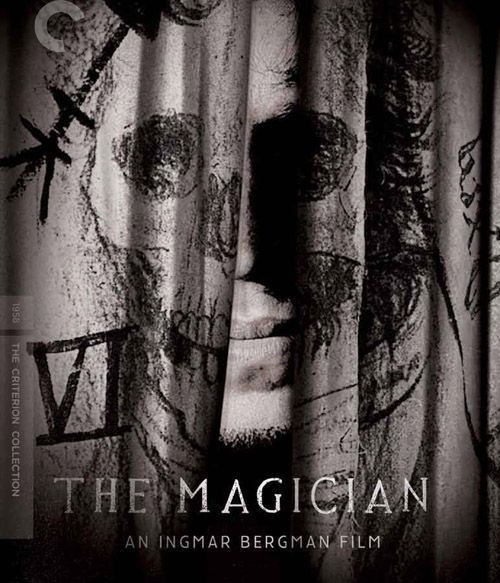
This is really a delight to watch, because the themes and philosophical questions come into light early, but the rest of the story is a dense and complicated riddle. What is truth? What is its value? What is magic, or faith in magic? Does it have value, even as a sham? Does the faith people put in a thing give it its true power, and which is more valuable: the faith of the magician or the faith of his audience? Go ahead and replace "magician" with literally any role where one asks for the faith of others.
But The Magician doesn't offer up answers quite as readily as it does questions, partially because it's cleverly playing both sides of the fence. Is there magic, or supernatural forces, or God? Do ghosts haunt us? Do Granny's witch's spells and potions do anything? Does Vogler have any power about him at all? The answer seemed to me to be both yes and no, to all of these questions. (I'm no Bergman scholar, but I know he was obsessed with, among other things, religious faith, and I suspect in some form or other he was a firm believer himself. No matter! Let it never be said he was afraid to dabble in skepticism.)
The best I can say is, this plays out like The Prestige crossed with The Rules of the Game, starring a traveling sideshow act of snake oil salesmen, and taking place in rural Sweden circa 1846. The delineation between the house staff and the upper-crust, and how each is scammed in their own ways, says a lot about the world of the story, the nature of faith and hope, and how it breaks down along class lines. There were many, many great confrontations, monologues, and turnarounds throughout. (I could do better than to point out it "says a lot" or "there were great bits," but this is just a recording of preliminary reactions, and much of it will take more time to digest.) The bit with the fictional love potions -- a collision of cynicism and idealism where both sides colluded to believe, and therefore to produce the supposed effect, was fantastic; both con-man and mark were culpable, as it is with fantasies and faith. For me personally, the actor who is not a ghost but is, who believes he is dying but isn't, who is more successful and convincing as a specter than he ever was as a thespian, was perhaps my favorite embodiment of the questions the film was asking, and there was something haunting in "mute" Volger's way of letting the actor take center stage. The antagonism between Doctors Vergerus and Volger was intense, and sharp, and fascinating -- and only slightly distracting because Gunnar Björnstrand looked shockingly like Kevin Kline with chin scruff in this.
So many layers, and I'm sure I didn't even scratch the surface on my first viewing. This is one disc I'm likely to check out the (Criterion) special features on.
(NOTE: Interestingly, after checking out some of them, I learn that The Magician is seen as a parable about the creative process, about film- and play-directing, about performance, and the relationship between a fickle audience and even fickler critics and the artist himself. All that's super interesting and totally there now that I see it, but I stand by my assessment as well, vis-a-vis faith and magic and truth.)

No comments:
Post a Comment